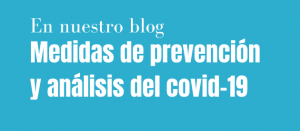Weeks after covid-19 has passed, many patients show symptoms of what is now called long-term covid. Identifying what is happening to our body can help us to manage the disease properly.
The world's entire population is facing a rapidly transmitted disease with a few clearly identified symptoms and with sequelae that vary greatly from patient to patient. In fact, there are symptoms such as vomiting or skin problems, which are being identified as cases evolve. Not to mention the risk to transmission posed by the high number of asymptomatic people, it seems that we are far from controlling and knowing about covid-19.
Through the app Covid Symptom Study, developed by KIng's College In London and different regional health systems in the UK, 19 symptoms of covid-19 have been detected, and one in 10 patients have at least one symptom 30 days after the disease has passed. Although it is not known why there is this persistence, there is a history of the behaviour of SARS (Severe Acute Respiratory Syndrome), a type of coronavirus that causes depression or chronic fatigue in forty percent of patients, even when they have been free of the disease for four years.
The head of this study, Tim Spector, does not know whether traces of the virus in the body imply a risk of contagion. It is precisely this uncertainty that is forcing extreme measures of confinement and social distance.
There are also iesearch shows that a large number of people ill with covid-19 - "87 per cent - have a high incidence of covid suffer at least one symptom 60 days after the onset of the disease.
But what symptoms are we talking about?
Fever, dry cough and shortness of breath have been the most common symptoms. key symptoms to detect covid-19, even in mild cases when many diagnoses have been made by telephone.
The headache and sore throat, muscle pain or loss of smell and taste are symptoms that have been added to the list of the main manifestations of covid-19. Now, the US Centers for Disease Control and Prevention has confirmed the following as symptoms of covid-19 congestion or runny nose, nausea and vomiting or diarrhoea.
To study are the neurological symptoms. One possible explanation relates them to the loss of taste (dysguesia) and smell (anosmia); the virus affects olfactory receptors or olfactory sensory neurons. The latter could be the gateway for the virus to enter the nervous system, altering the state of consciousness, causing facial paralysis or muscle weakness and even epileptic seizures.
The skin can also reveal an infection by covid-19, although in the same way as other viruses. This is a symptom - "rashes, pimples - a mild symptom of the disease but one that can lead to a positive result.
In any case, if symptomatology is the key to diagnosis, the fact is that 4 out of 5 patients are asymptomatic. For this reason, the PCR and antibody tests are essential to know where we stand with respect to the virus.
Stress management, essential for this summer
The pandemic caused by covid-19 has meant a radical and immediate change in our way of life. From one day to the next, we became housebound and stopped seeing our loved ones, with great concern for everyone's health. The associated job or economic uncertainty, added to the list of stress factors from the outset.
After months, the questions about this disease are still open and we see no prospect of normalisation. How can this affect us?
Although the medical priority is to care for people suffering from covid-19 and to stop the spread of infection, it cannot be denied that the pandemic has affected other aspects of our health. Stress is one of them.
Among the studies led by the Cleveland Clinic to prevent and treat covid-10, the increase in the number of cases of covid-10 has been analysed. Broken Heart Syndrome, not as a direct consequence of covid-19 but due to stress. that generates this situation.
This stress cardiomyopathy manifests itself in the following ways chest pain and pressure in the chest. In addition to emotional factors, it can also be caused, for example, by physical stress resulting from sepsis. On the other hand, this syndrome can be confused with an acute myocardial infarction, although the factors that differentiate the two pathologies are clear.
Broken heart syndrome particularly affects women, although it does not distinguish between ages. Moreover, it is not necessarily related to cardiovascular risk factors and is associated with a history of mental illness and neurological disorders.
Stress is also related to the autoimmune diseaseswith skin allergies and with a premature cellular ageing.
The World Health Organisation has published the guide Doing what really matters in times of stressto cope with day-to-day life in the midst of worry and uncertainty.
When stress is taking its toll on our bodies and we are already beginning to feel its physical and emotional consequences, we need to think about how to stop it before it is too late. At Biosalud Day Hospital can help you balance your organism and to incorporate lifestyle guidelines to help you keep stress away.



